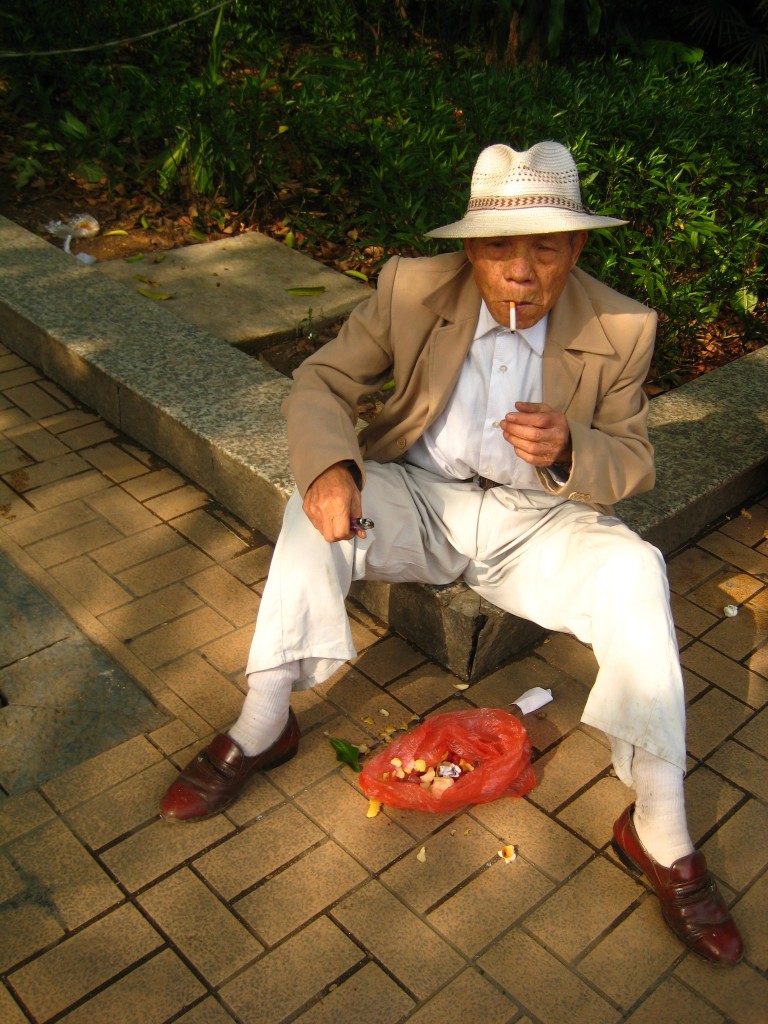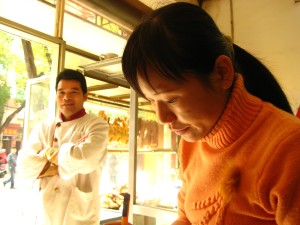Cantonese and English: The Twain Shall Never Meet so Just Accept It
“Oh sorry, I’m so sorry” this woman is probably not saying. Naw, she’s just serving me some excellent Sichuan food, probably.
Anyway, I can’t begin to think how weird it must be for the people whose first language is English when they start learning Cantonese as their second language. How bewildering that “sorry?” in Cantonese doesn’t mean “I didn’t hear what you said, could you say it again?” No, Cantonese is logical. How can you be sorry if you haven’t done anything wrong? ‘I didn’t hear you’ should be 咩話?(Meh wah? What word?) or in some cases 你講咩嘢呀? (Lei gong mat yeh ah, you say what thing, what are you on about.)

吓?咩話? (Ha? Wot word?)
Not only that – when you really have done something wrong, there are two different ‘sorry’. The first one is the only one you hear a lot at least here in Hong Kong: 唔好意思。(m hou yisi – literally Not Good Intention or Don’t Intention. Presumably “it wasn’t my intention” and indicates slight embarrassment.) It’s the kind of sorry you use if you’re a few minutes late, if something’s unavailable, you can’t come to the party Things that aren’t necessarily anything to do with you.
Now 對唔住 (doi m jyu, face-not-ing, I can’t face you), that’s the biggie. You have dropped an anvil on someone’s toe, scraping off the beautiful nail polish pattern she had just had made in an expensive nail bar in Central. Now you feel real shame and can’t even face your victim.
Use sparingly! Otherwise you’ll be held responsible. Or something.
P.S.
You can learn many more such expressions by taking courses (regular or crash) with me this summer. Get some friends together and learn Cantonese without really trying!


